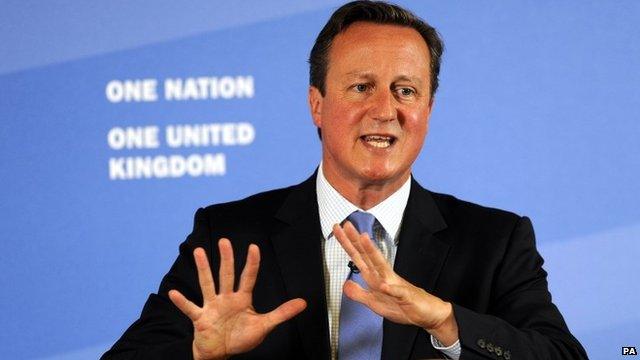Yorkshire's dash for devolution poses problems
- Published
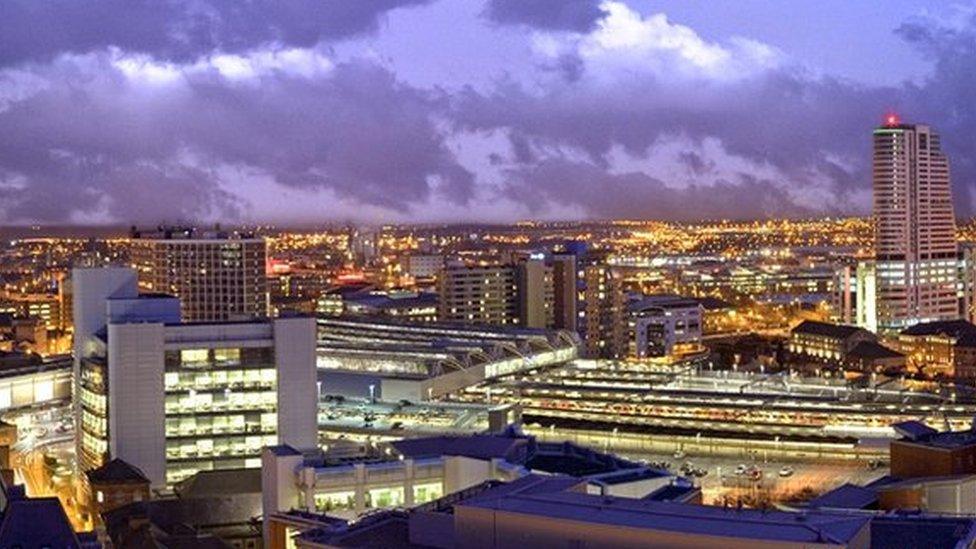
Councils across Yorkshire have submitted rival devolution bids
Yorkshire's dash for devolution is stalling as more questions than answers are being thrown up virtually every step of the way.
All sides appear to agree that shifting budgets and decision-making powers from Whitehall to Yorkshire on fundamental economic issues makes sense.
The problem is how to go about it.
Council leaders across Yorkshire have been unable to fully agree on how many mayor-led devolved regions there should be, which neighbours they should join up with or what powers they should have.
Chancellor George Osborne had set a deadline of September for them to come up with their own proposals based on the template of a deal signed almost a year ago with the councils on the other side of the Pennines.
They have all agreed to become part of the Greater Manchester devolved region.
Good neighbours?
The initial stumbling block in Yorkshire appeared to be wholesale opposition from council leaders to the chancellor's insistence that local authorities who agree to link up had to give the prime responsibility for any new powers and budgets handed down from central government to a directly-elected executive mayor.
Before May's General Election the previous coalition government had promised there would be an option for a "combined authority", made up of council leaders, to direct their devolved region's policies and budgets without a mayor at the helm.
With the added power of a majority behind him it soon became clear that any deal backed by Mr Osborne now hinged on the acceptance of a mayor.
The council leaders had to content themselves with the compromise that a two-thirds majority of them would be able to veto any mayoral decision.
Then comes the sticky issue of which Yorkshire councils can agree to work with each other.
It was a potential problem that even the Prime Minister picked up this summer when he was overheard making that now notorious joke: "We just thought people in Yorkshire hated everyone else - we didn't realise they hated each other so much."
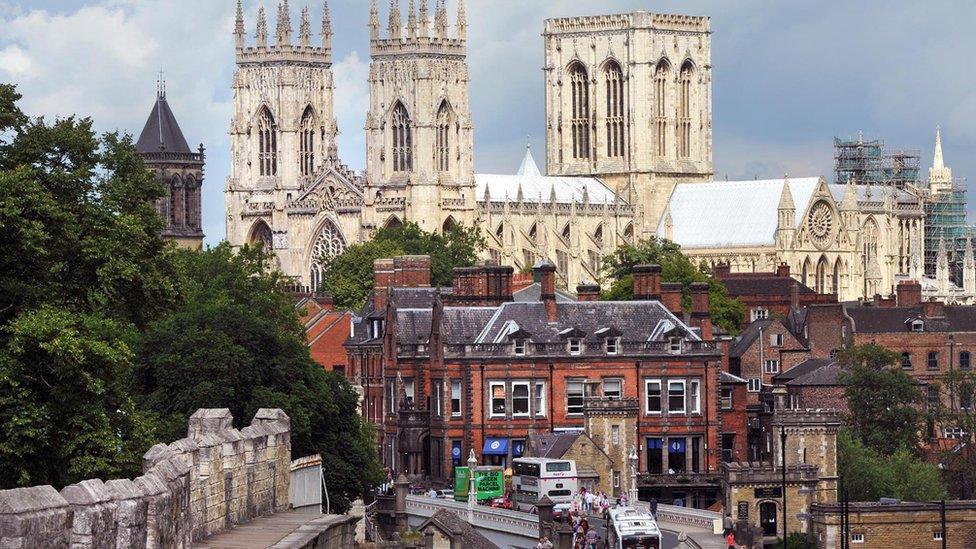
The city of York features in three separate devolution bids
As a September deadline came and went only the four leaders of the big South Yorkshire councils of Sheffield, Barnsley, Doncaster and Rotherham, together with five smaller district councils, had put together a proposal which has now been accepted.
The Sheffield City Region now has elections for an executive mayor pencilled in for the spring of 2017.
Haggling confusion
The remaining councils in Yorkshire are still haggling over whether they should ask for the chancellor's blessing for all of them to link up in a single Greater Yorkshire devolved region or split into two or three smaller areas each with their own mayor.
It has created a confusing picture as these rival propositions backed by different council leaders often overlap each other.
The Leeds City Region bid, which many see as the favourite to be given the chancellor's approval, includes all five West Yorkshire authorities together with Selby, Harrogate, Craven and York.
Another suggestion links the County Council and all the districts of North Yorkshire with the East Riding Council and Hull.
That means City of York council is actually included in three separate bids, including two that it's own leader and officials have not had any part in drawing up.
These different permutations are so fiercely contested that in October all the council leaders were "invited" to attend a private meeting in the Westminster office of James Wharton, the minister overseeing devolution,
He told them to set aside any differences and come up with realistic workable proposals that all could accept.
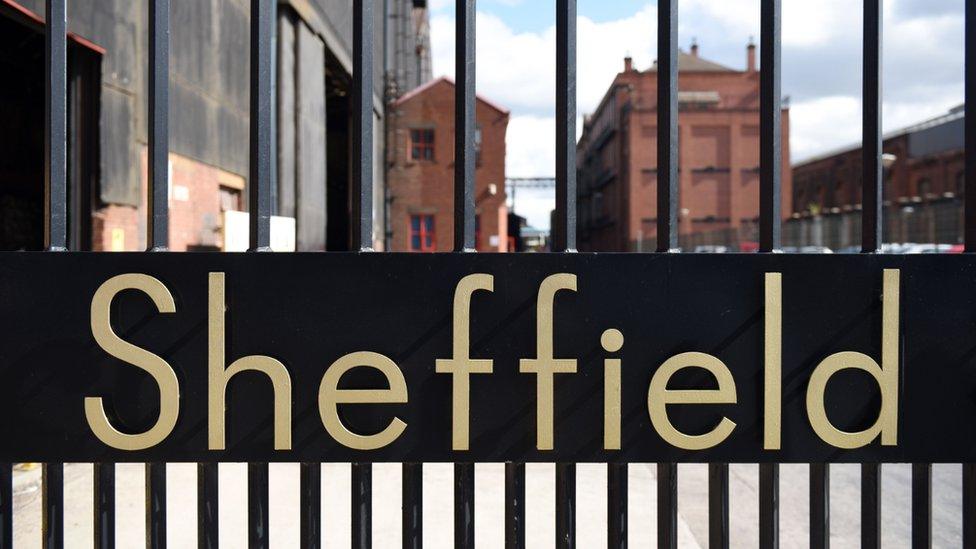
Even the Sheffield devolution deal is far from certain to go ahead
The chancellor himself later said that he did not want to impose any of these devolution deals on Yorkshire as they could only work if they came "from the bottom up".
Yet even the signed South Yorkshire deal is far from a certainty to go ahead.
The council leaders say until they hear firm figures on exactly how much public money their devolved region will be allocated to administer its new powers then, as far as they are concerned, it is still a "proposal".
The chancellors's autumn spending statement scheduled for late November is expected to add more financial detail.
That should give the first indication of whether the sole devolution deal agreed in Yorkshire so far has any chance of getting off the starting blocks.
- Published2 October 2015
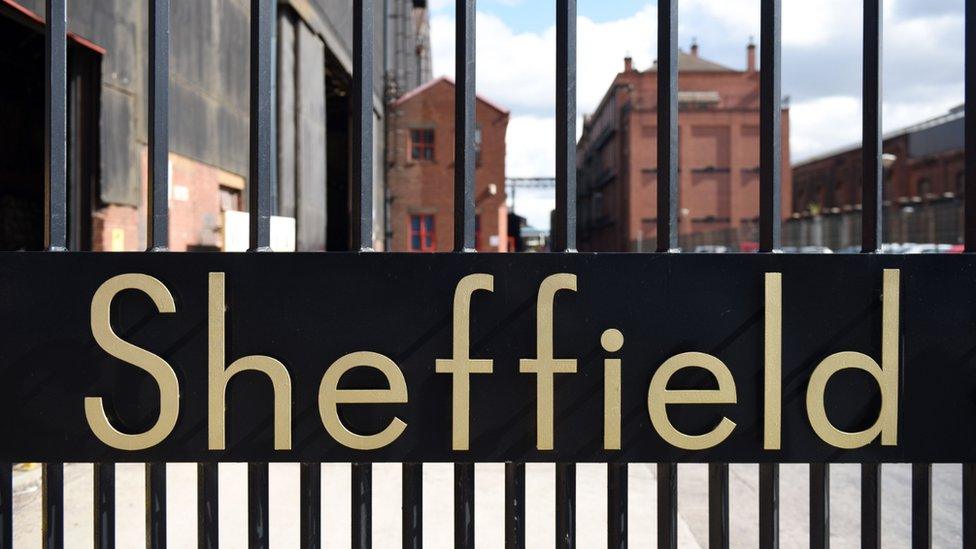
- Published11 September 2015
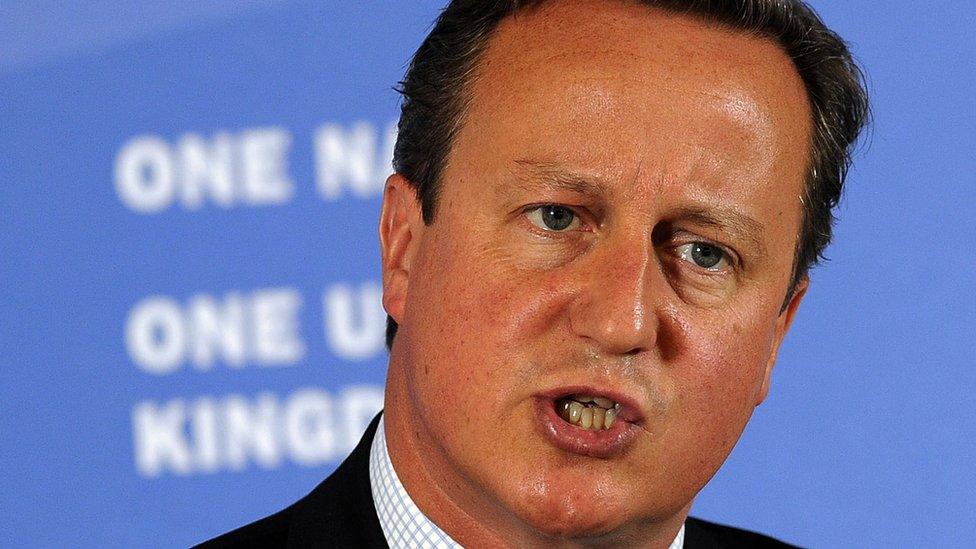
- Published11 September 2015
